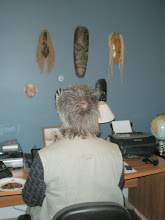This book is relentlessly cheerful which annoys the shit out of me; however, it does show me a positive way of looking at an issue that I view so negatively.
Aging brings wisdom that is essential to the unity and progress of both the spirit and the community, and one forsakes it at his or her own peril.
Quite the contrary: aging is not about getting weaker, but is a journey of finding greater value and enlightenment or wisdom. Buddhist philosophy teaches us to respect, appreciate, and care equally for young and old lives.
Time brings us an accumulation of knowledge, experience, and skills. We learn lessons from trial and error that enhance our judgment and force us to persevere in the face of adversity. Failure leads to humility, gratitude, empathy, and healthy dependence on others. Ambition and a desire for legacy motivates us to build, and compose.
A pivot point is a period of time in which an event or situation prompts a significant disruption in our initial ability to understand and cope with it. It exposes a gap between the challenges or demands of a life event and our existing strengths, values, skills, and connections. A pivot point might begin with a moment of crisis, trauma, or even terror, and causes us to feel temporarily stunned or paralyzed, and uncertain about what to do next. We may want and need to respond, but we don’t know what will be effective to resolve the situation and regain our balance. Even though a pivot point exposes a weakness, it is also loaded with the potential for tremendous growth if we can navigate the two sides of the gulf and create a bridge to link them together. Resolving a pivot point makes us into more developed and capable aging adults. The greatest challenge of a pivot point is having to give up previous notions, identities, and ways of doing things in the service of a solution.
Three components to success in life: avoiding or minimizing the risk of disease and disability, maintaining high mental and physical functioning, and actively engaging in meaningful life activities.
In the face of decline, we engage in a process of selection among various pursuits so as to focus on the ones most relevant, accessible, and meaningful; we work on optimization of our abilities through extra rehearsal or exercise; and we adjust our activities or performance to allow for compensation in the face of certain deficits.
Matisse articulated so well: “I have needed all that time to reach the stage where I can say what I want to say.” This is a powerful statement that every aging person should be able to embrace.
When we denigrate aging and only see it primarily as a time of decline and weakness, we rob ourselves of one of the most influential and powerful forces in our life. The antidote is simple: look at aging people and ask about their reserve, learn about their resilience, and marvel at their resiliency.

No comments:
Post a Comment